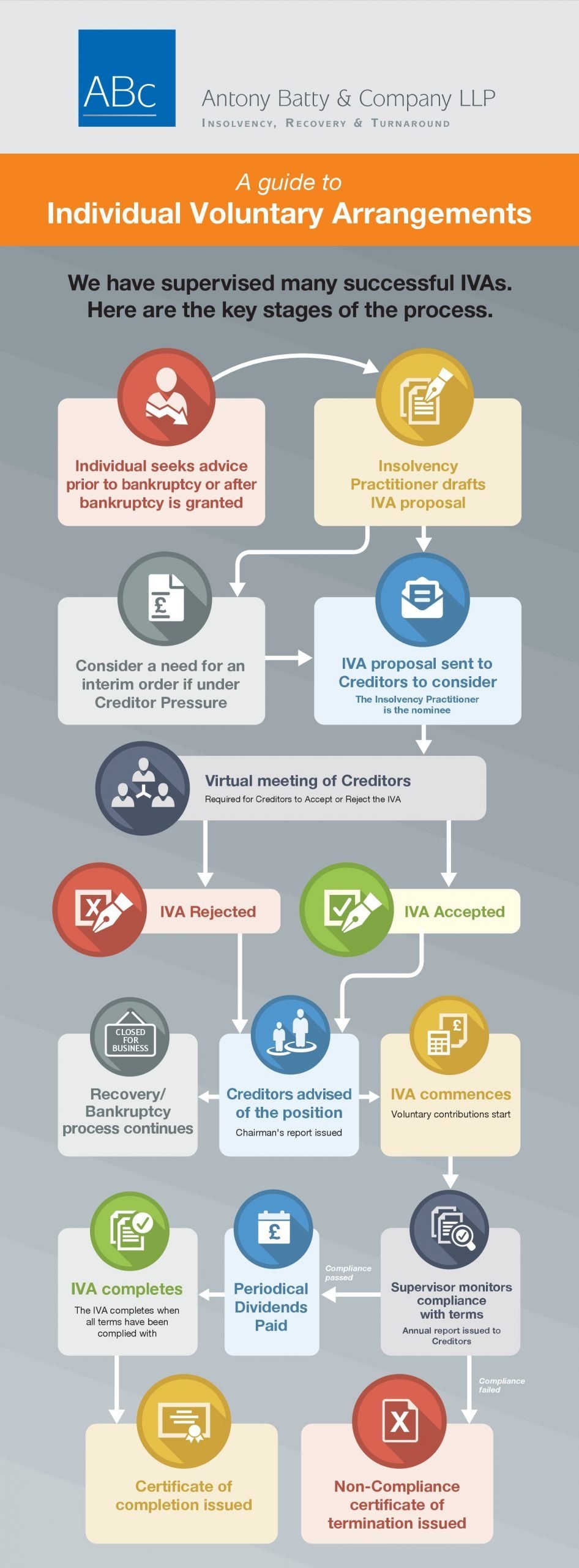An Individual Voluntary Arrangement (IVA) is an alternative to Bankruptcy. An Insolvency Practitioner works to give IVA advice and help to the individual. It is a legal process that gives an individual struggling with their debts protection from creditors. At the same time it should provide creditors with a better or quicker return than Bankruptcy.
There are many reasons why individuals fall into serious debt. The IVA procedure enables the individual to put a proposal to his/her creditors for a composition in satisfaction of his/her debts or a Scheme of Arrangement of his/her affairs. A composition is an agreement under which creditors agree to accept a certain sum of money in settlement of the debts due to them.
The procedure is extremely flexible and the form which the Voluntary Arrangement takes will depend on the terms of the proposal agreed by the creditors.
Need help?
If you are facing insolvency, the sooner you contact us, the more we can help.
Individual Voluntary Arrangements – The Process Simplified
Each IVA is different, but the basic steps are the same, as this infographic demonstrates.

How Long Does an IVA Last?
Typically, an IVA can last for between one to five years, during which time interest on debts is frozen and repayments are made to creditors from the realisation of assets or from contributions made out of earnings.
The agreement requires the approval of at least 75% by value of the creditors. Once approved it is legally binding on the individual and all his/her creditors.
Who can apply for an IVA?
- Private individuals and their spouse or partner can apply for an IVA
- Persons in business as sole traders can apply for an IVA and it may be possible to continue the business
- Directors of limited Companies can apply for an IVA
- Certain professionals (such as solicitors or accountants) who are barred from practising as a bankrupt can enter into an IVA. However, the consent of their professional body is also required
In addition, a proposal for an IVA may be made by a debtor even if he/she is already subject to bankruptcy proceedings.

via Google Reviews




